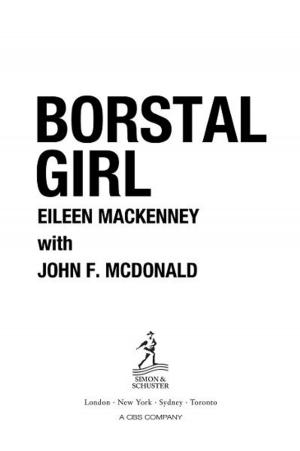One in a Billion
The Story of Nic Volker and the Dawn of Genomic Medicine
Biography & Memoir, Reference, Nonfiction, Health & Well Being, Medical| Author: | Kathleen Gallagher, Mark Johnson | ISBN: | 9781451661347 |
| Publisher: | Simon & Schuster | Publication: | April 12, 2016 |
| Imprint: | Simon & Schuster | Language: | English |
| Author: | Kathleen Gallagher, Mark Johnson |
| ISBN: | 9781451661347 |
| Publisher: | Simon & Schuster |
| Publication: | April 12, 2016 |
| Imprint: | Simon & Schuster |
| Language: | English |
“A riveting scientific detective story” (The Washington Post) by two Pulitzer Prize–winning journalists who chronicle a young Wisconsin boy with a never-before-seen disease and the doctors who save his life by taking a new step into the future of medicine.
In this landmark medical narrative, Pulitzer Prize-winning journalists Mark Johnson and Kathleen Gallagher share the story of Nic Volker, the first patient to be saved by a bold breakthrough in medicine—a complete gene sequencing, aimed at finding the cause of an otherwise undiagnosable illness. At just two years old, Nic experienced a brief flicker of pain that signaled the awakening of a new and deadly disease, one that would hurl him and his family into a harrowing journey in search for a lifesaving cure. After his symptoms stump every practitioner, it becomes clear that Nic’s is a one in a billion case, a disease that no one has ever seen before.
As Nic and his family search for answers, the scientific community is racing to bring about the next revolution in medicine—translating results from the Human Genome Project to treatments for actual patients. At the forefront is the brilliant geneticist Howard Jacob, who starts a lab at the Medical College of Wisconsin. Then Nic’s head physician reaches out to Jacob with an unprecedented of idea. A disease like Nic’s is likely due to a rare mutation: if they could sequence his genes to try to find the mutation, the boy might live. Jacob doesn’t know if he can do it; Nic’s doctors don’t know if it will even work; and no one knows what else might lie in the Pandora’s Box of Nic’s genome. But they decide to try—and in doing so, they step into a new era of medicine.
One in a Billion is “a compelling story of a modern medical miracle—the first instance of personalized medicine” (Milwaukee Journal Sentinel) and the birth of a scientific revolution.
“A riveting scientific detective story” (The Washington Post) by two Pulitzer Prize–winning journalists who chronicle a young Wisconsin boy with a never-before-seen disease and the doctors who save his life by taking a new step into the future of medicine.
In this landmark medical narrative, Pulitzer Prize-winning journalists Mark Johnson and Kathleen Gallagher share the story of Nic Volker, the first patient to be saved by a bold breakthrough in medicine—a complete gene sequencing, aimed at finding the cause of an otherwise undiagnosable illness. At just two years old, Nic experienced a brief flicker of pain that signaled the awakening of a new and deadly disease, one that would hurl him and his family into a harrowing journey in search for a lifesaving cure. After his symptoms stump every practitioner, it becomes clear that Nic’s is a one in a billion case, a disease that no one has ever seen before.
As Nic and his family search for answers, the scientific community is racing to bring about the next revolution in medicine—translating results from the Human Genome Project to treatments for actual patients. At the forefront is the brilliant geneticist Howard Jacob, who starts a lab at the Medical College of Wisconsin. Then Nic’s head physician reaches out to Jacob with an unprecedented of idea. A disease like Nic’s is likely due to a rare mutation: if they could sequence his genes to try to find the mutation, the boy might live. Jacob doesn’t know if he can do it; Nic’s doctors don’t know if it will even work; and no one knows what else might lie in the Pandora’s Box of Nic’s genome. But they decide to try—and in doing so, they step into a new era of medicine.
One in a Billion is “a compelling story of a modern medical miracle—the first instance of personalized medicine” (Milwaukee Journal Sentinel) and the birth of a scientific revolution.















